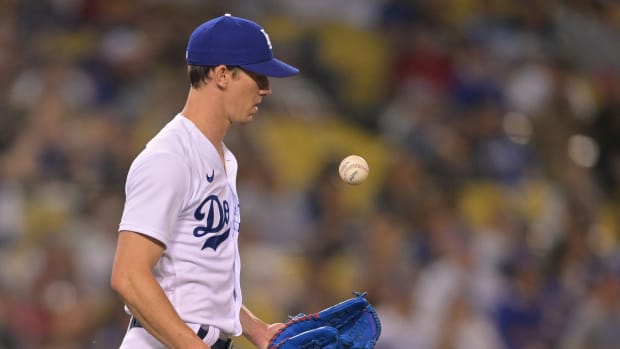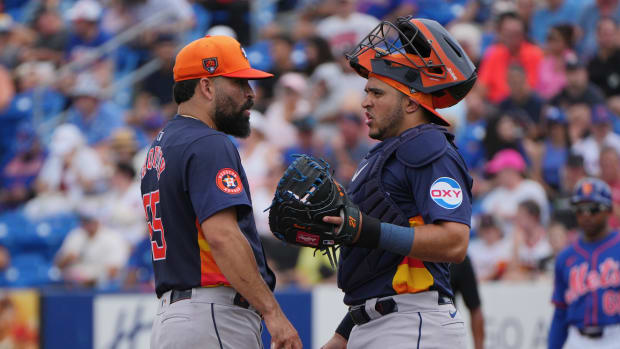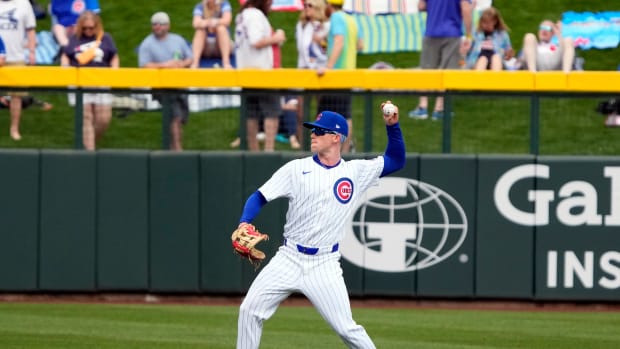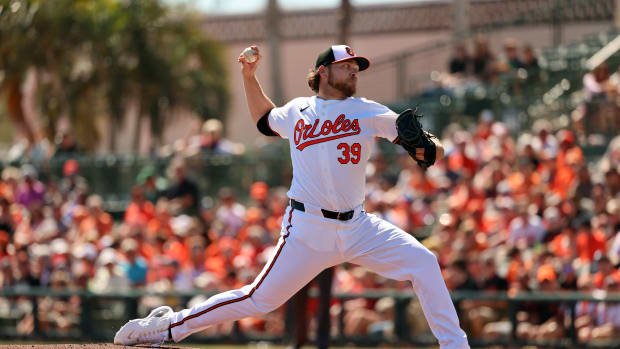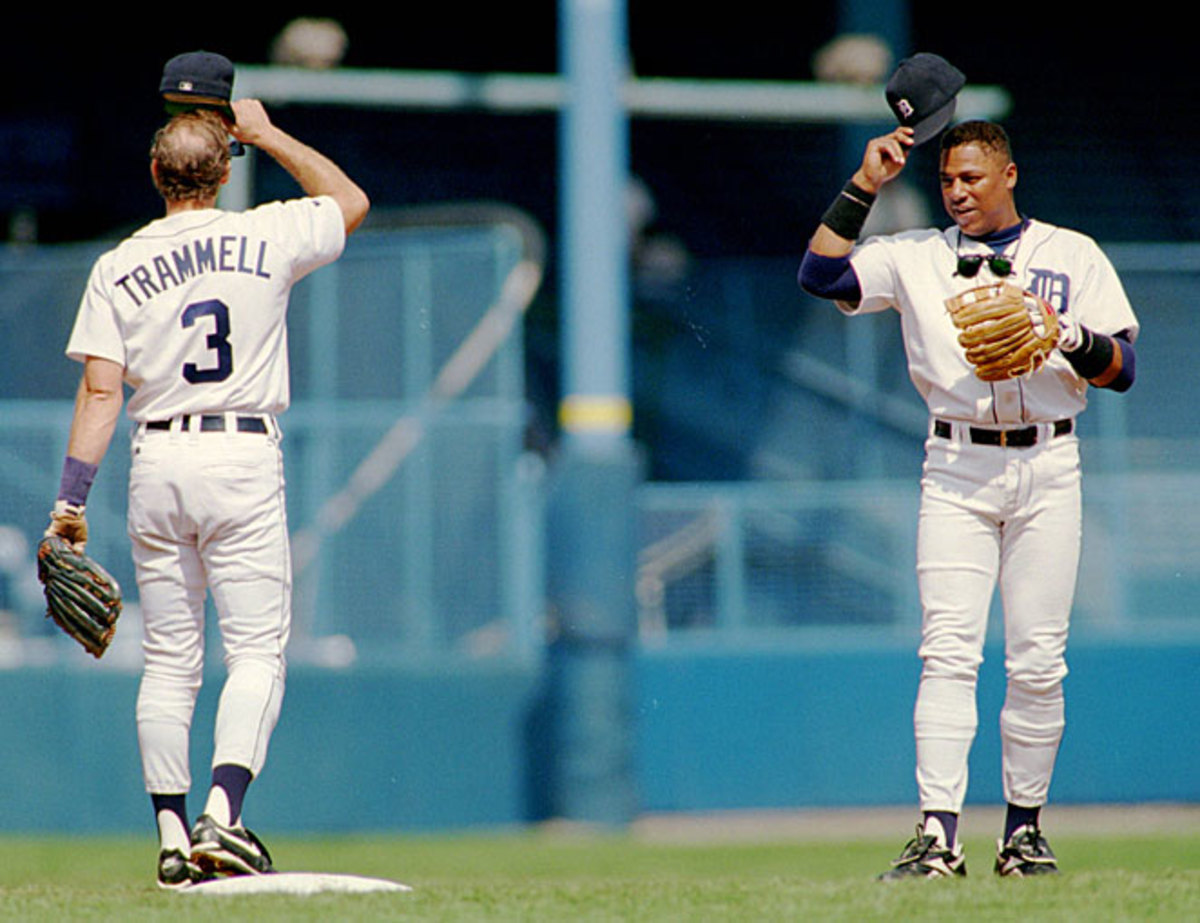
Trammell hoping to go into Hall of Fame with Whitaker
Alan Trammell, who played all 20 seasons of his career with the Tigers, received 33.6 percent of the Hall of Fame vote in his 12th year on the ballot, a small decline from 36. 8 percent the previous year. (Seventy-five percent is needed for election; five percent is needed to remain on the ballot.) Despite Barry Bonds, Roger Clemens, Mike Piazza, Craig Biggio and Curt Schilling, among others, joining the ballot for the first time, no player received enough votes for Hall enshrinement.
The 1984 World Series MVP, a six-time All-Star and a four-time Gold Glove winner at shortstop, Trammell won three Silver Sluggers and hit 185 career home runs, stole 236 bases and finished with a .285 batting average, .352 on-base percentage and .415 slugging percentage. In 1987 he finished third for the batting title with a .343 average while hitting a career high 28 home runs and was the American League MVP runner-up.
Trammell is currently the bench for the Diamondbacks, and he shared his thoughts on and reaction to this year's Hall of Fame ballot with SI.com.
I might be somebody that's just on the short end. You know what, I'm OK with that. I'm not one that's going to go out and campaign. Would I like to be in there? Sure. In my own mind I know that I was a pretty good player, but if I'm a little bit short, that's not going to change anything, as far as I'm concerned.
Last year I got a bump. I've been on the ballot a dozen years, and for most of those I had been getting 15 to 20 percent -- somewhere in that range. Then I had a jump last year to the mid-30s.
People say, 'What do you do on the day of the voting? Are you by the phone?' if you were at that position, do you think someone's going to jump from 17 percent to 75 or even from 35 percent? That hasn't been done. The track record in recent years, with Goose Gossage, Jim Rice and Bert Blyleven, has been a trend of getting to 50 percent, then to 60. Now, if I were in the mid-60s like Jack Morris was, that would be a lot more curious. But if I know it's not going to happen at that particular time, I'm just going to go about my business like I have.
I think Craig Biggio will get in very soon. Unfortunately he didn't get in this year, but he's not the first damn good Hall of Famer that didn't get in on the first or second ballot. That's been a trend that's going been on for a long, long time.
As far as the rest of this new group of candidates, if they're not proven guilty, they'll get in. I believe that. If they are not proven guilty, how can you keep them out? That's just my opinion.
I think some of the writers are making a stand at this particular time, but the players are on the ballot for 15 years. So, 10 years from now, is everyone going to feel exactly the same? I don't know. I just think, in general, time heals wounds.
I think the writers do a really good job of taking this to heart. They feel, at this particular time, that's how they're going to vote. In six to 10 years or 12 years, that could change. Whether or not that happens, I'm not going to be a judge and jury. Obviously people will say their numbers are distorted because they did something illegal -- well, prove it.
There's no question in my book that Jack Morris is a Hall of Famer. The era that he pitched, through the '80s for sure, he was No. 1. People are going to bring up other names -- Roger Clemens and Doc Gooden and some others were good -- but they didn't start in 1980. We're talking about a full decade. Jack was there the whole decade.
Jack, for that 10-year period, was as good as anybody there was and the obviously his World Series heroics put him on another level. You can talk about his ERA, but you can beat up anybody with some sort of numbers and make a case.
This guy was a big-game pitcher, and he pitched to win. If the game was 7-1, it was probably going to end up 7-3 or 7-4 -- Jack was going to throw strikes and might give up a solo home run or a couple of them. But if it was 3-2 or 4-2, the game was going to stay that way.
I feel that there was nobody better. For that 10 years, he was No. 1 in the American League. In my view, that's huge. He's as good as there was. Obviously he was my teammate, so these are my feelings as I saw him on a regular basis. But he belongs. He's a Hall of Famer in my book.
If I do get elected, I'll tell you how I'd like it to happen: with my double-play partner, Lou Whitaker. Lou unfortunately didn't get enough votes the first year on the writers' ballot, which I'm not sure how that happened, so he didn't stay on the ballot but could get in through with the veterans' committee. Nevertheless, Whitaker-Trammell is the longest running double-play combo -- more than twice as long as any other pair. It's a good story and two pretty good players when you put us together.
We came up to the big leagues the same day in September of 1977. Maybe somewhere down the road that gets a little momentum and we go in together. I was brought up by Sparky Anderson, and in my upbringing the team was always first. It would be special to go in together. If I'm allowed my thoughts, that really would be very special. It's never been done like that before. Whether or not that happens, who knows? If it ever happened down the road, I would prefer it that way, but that's not for me to say.































